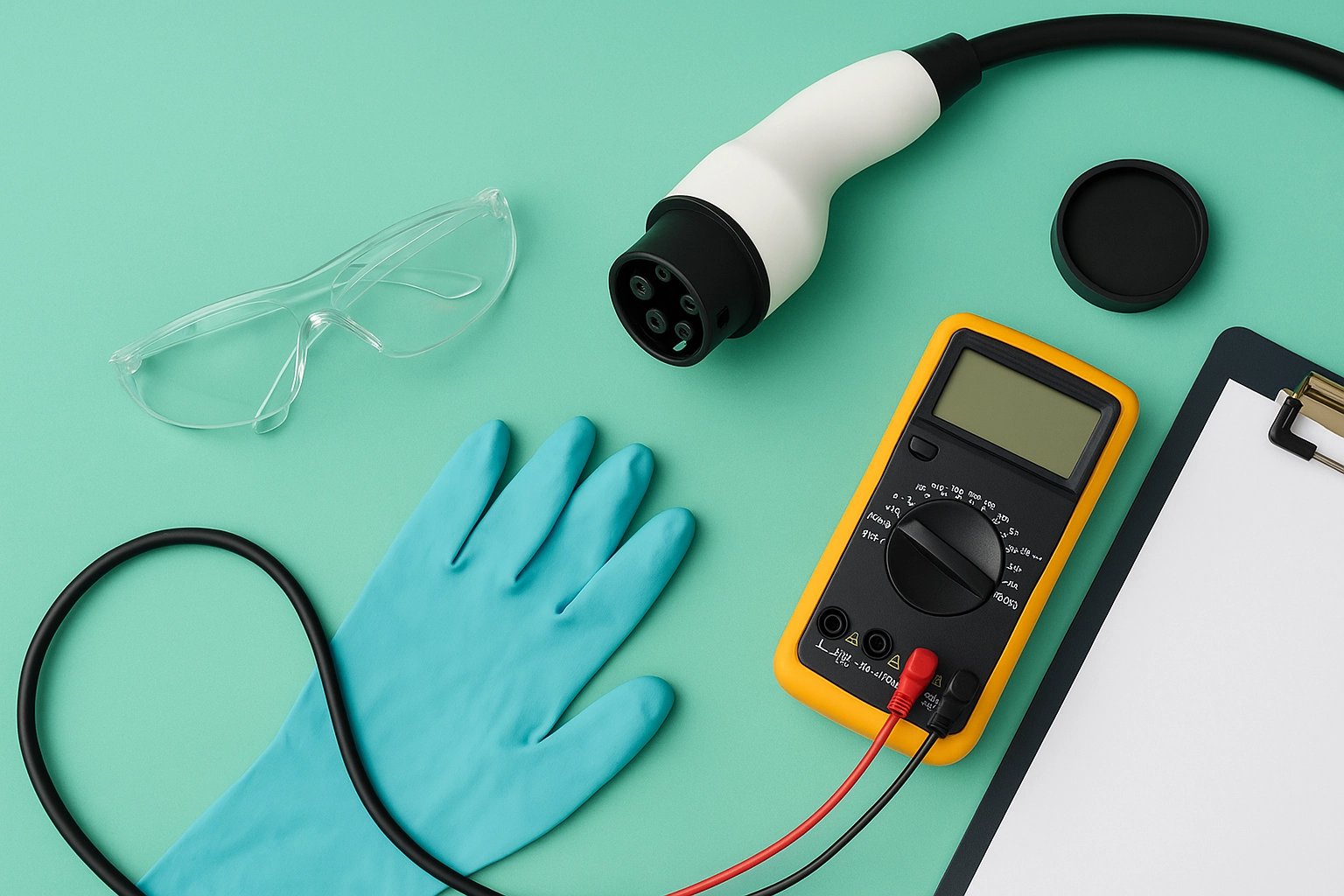IEEE 1609.2 Security Protocols EV Charging Equipment Test
The IEEE P1609 working group has developed a suite of security protocols to ensure the secure communication between electric vehicle (EV) charging stations and connected devices, enhancing both privacy and data integrity in the growing field of electric mobility.
In this comprehensive service, we specialize in testing EV charging equipment against the requirements outlined by IEEE P1609.2, focusing on secure message exchange protocols to mitigate risks associated with unauthorized access or tampering. Our expertise ensures that your equipment complies with industry standards and regulations, providing a robust security framework for EV charging infrastructure.
The IEEE 1609 series of standards addresses the need for secure communication between electric vehicle (EV) charging stations and connected devices. These protocols are critical to ensuring privacy and data integrity in the growing field of electric mobility. The IEEE P1609 working group has developed a suite of security protocols, including IEEE P1609.2, which specifically addresses secure messaging.
Our testing services encompass a range of security checks designed to ensure that your EV charging equipment meets all relevant standards and requirements. We use state-of-the-art instrumentation and rigorous test procedures to simulate real-world conditions that the charging equipment might encounter during operation. This includes both laboratory-based tests and field validation exercises, ensuring comprehensive coverage.
The IEEE P1609.2 standard defines a framework for secure messaging between EV charging stations and connected devices. It provides guidelines on how to implement secure communication channels using encryption, authentication, and other security measures. Compliance with this standard is essential for manufacturers of EV charging equipment to ensure that their products are secure against potential threats.
Our testing process begins with a thorough review of your product's design and documentation to identify any areas where additional security measures may be required. We then proceed to conduct laboratory-based tests using our advanced instrumentation, followed by field validation exercises to ensure real-world applicability. Throughout the testing process, we adhere strictly to IEEE P1609.2 guidelines while also considering other relevant standards such as ISO/IEC 27001 and NIST SP 800-53.
The results of our tests are rigorously documented in detailed reports that provide insights into any areas where your product may not meet the required security levels. These reports also include recommendations for improvements to enhance overall security performance. By working closely with you throughout this process, we aim to help you achieve compliance with IEEE P1609.2 and other relevant standards.
Our experienced team of experts is dedicated to providing high-quality testing services that meet the highest industry standards. With years of experience in conducting rigorous tests on EV charging equipment, we understand the unique challenges faced by manufacturers in this rapidly evolving sector. Our commitment to excellence ensures that you receive accurate and reliable results that can be trusted as evidence of your product's compliance with IEEE P1609.2.
Scope and Methodology
| Test Parameters | Description |
|---|---|
| Encryption Algorithms | Testing for compliance with IEEE P1609.2 encryption requirements. |
| Authentication Mechanisms | Evaluation of the security protocols used to authenticate devices. |
| Data Integrity Checks | Assessment of methods employed to ensure data integrity during transmission. |
| Anomaly Detection | Identification and analysis of potential vulnerabilities in communication channels. |
The scope of our testing covers several critical areas as defined by IEEE P1609.2:
- Encryption algorithms: We test the implementation of encryption methods to ensure they meet specified security criteria.
- Authentication mechanisms: Evaluation is performed on how devices are authenticated securely to prevent unauthorized access.
- Data integrity checks: Methods used to verify that transmitted data remains unaltered during transport are assessed for reliability and effectiveness.
- Anomaly detection: Potential vulnerabilities in communication channels are identified through monitoring and analysis techniques designed to detect unusual patterns or behaviors indicative of security breaches.
Each test is conducted using industry-standard equipment and methodologies, ensuring accurate results that reflect real-world conditions. Our approach combines laboratory-based testing with field validation exercises to provide a comprehensive assessment of your EV charging equipment's security features.
Benefits
- Enhanced Security: Protects against unauthorized access and data breaches, ensuring the safety of both users and operators.
- Compliance Assurance: Ensures that your EV charging equipment meets all relevant standards and regulations, reducing legal risks.
- Improved Reputation: Demonstrates a commitment to quality and security, enhancing your brand's reputation in the market.
- Increased Confidence: Provides peace of mind for users who know their devices are protected by robust security measures.
- Competitive Advantage: Differentiates your products from competitors by offering superior security features that meet or exceed industry standards.
- Cost Savings: Early detection and correction of security issues can save significant costs associated with post-release fixes and recalls.
The benefits of our IEEE 1609.2 testing extend beyond mere compliance; they offer tangible advantages that contribute to the long-term success of your EV charging equipment. By ensuring secure communication channels, you not only protect against potential threats but also build trust with users who rely on your products for safe and reliable operation.
International Acceptance and Recognition
The IEEE P1609 series of standards has gained widespread acceptance across the globe, recognized by regulatory bodies and industry stakeholders alike. Compliance with these standards is increasingly becoming a requirement for manufacturers looking to enter international markets.
In many countries, adherence to IEEE P1609.2 is not just optional but mandatory due to stringent regulations aimed at promoting secure and reliable electric vehicle charging infrastructure. By partnering with us, you can ensure that your EV charging equipment meets these demanding requirements, opening doors to new opportunities in international markets.
Our commitment to quality extends beyond local markets; we have successfully assisted clients in achieving compliance across various regions worldwide. Whether it's North America, Europe, or Asia-Pacific, our expertise ensures that your products are ready for global deployment.





